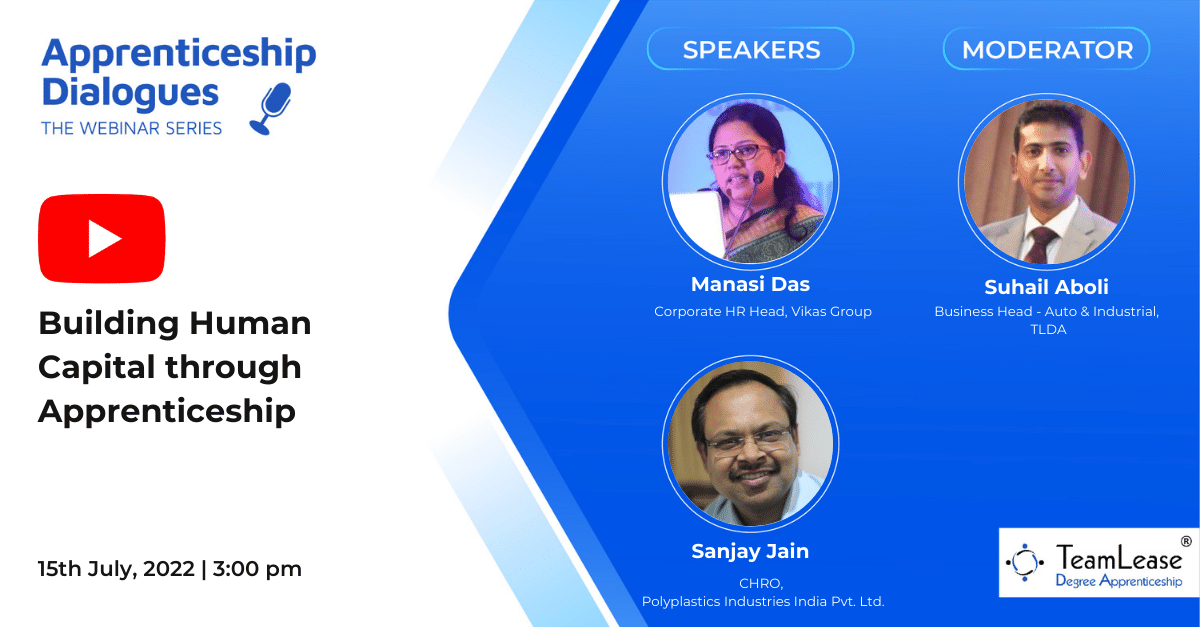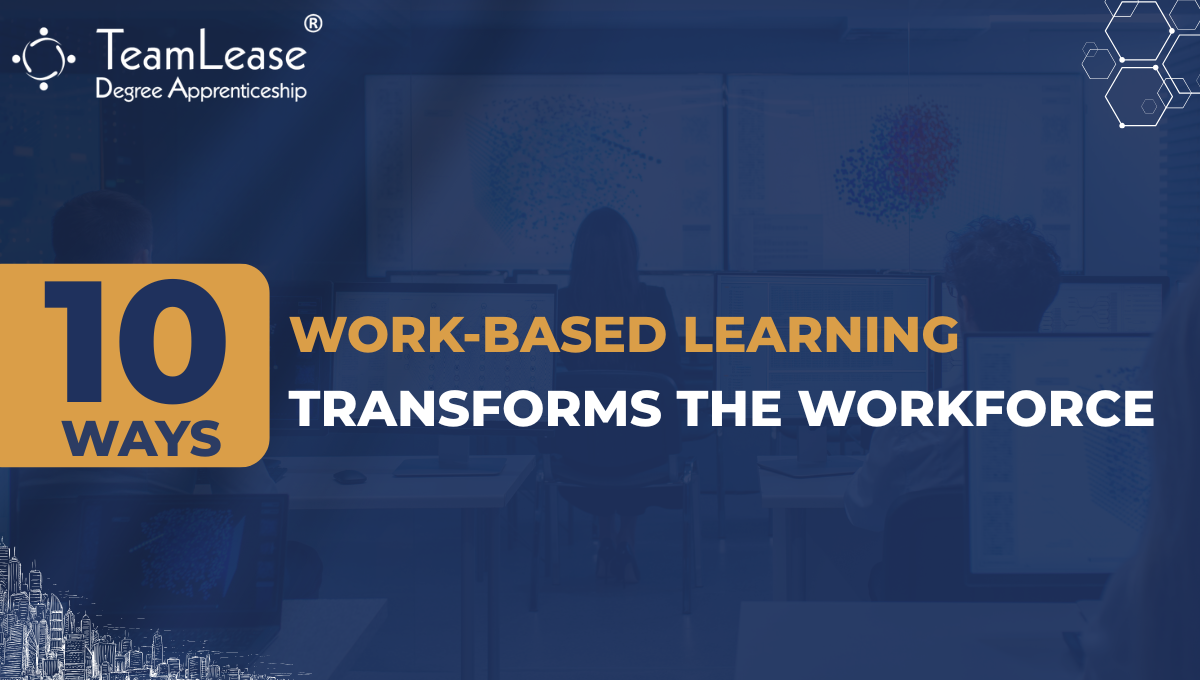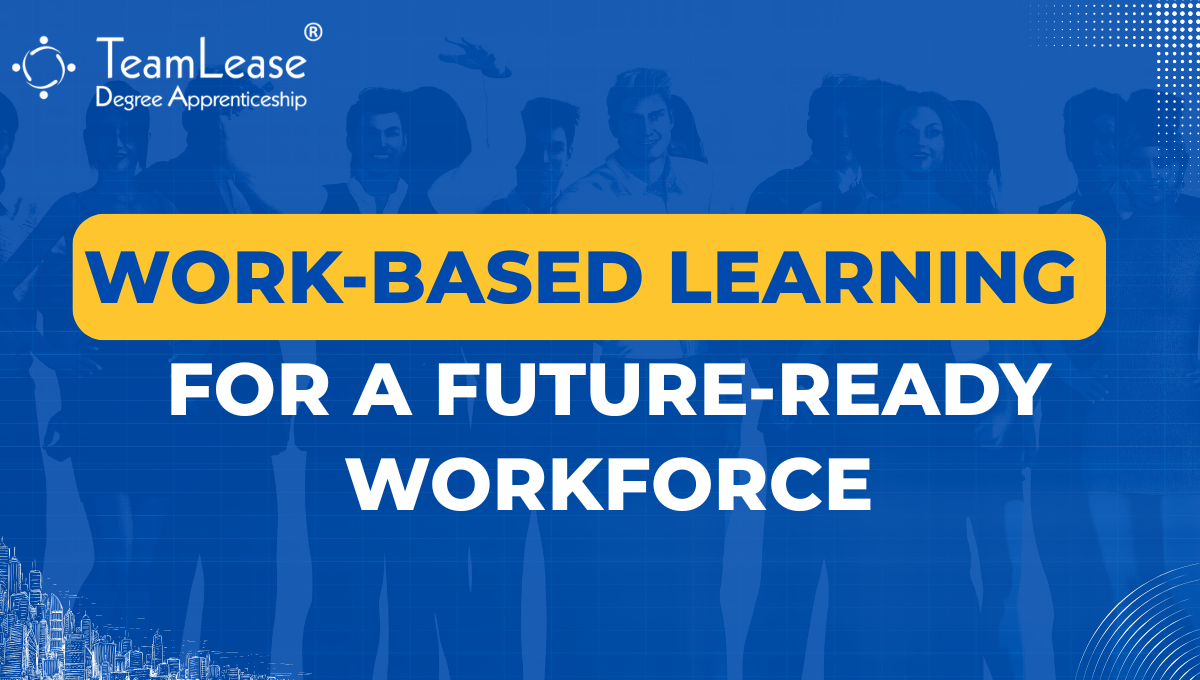TeamLease Degree Apprenticeship (TLDA) organised an online panel discussion on "Building Human Capital through Apprenticeship" slated for the 15th of July 2022.
On the panel we had Manasi Das, Corporate HR Head, Vikas Group, Sanjay Jain, CHRO, Polyplastics Industries India Pvt. Ltd., and Suhail Aboli, Assistant Vice President, TeamLease Degree Apprenticeship (TLDA) who moderated the webinar discussion.
Here are some highlights of the discussion. Please read on.
 What is the current landscape of talent in your organization?
What is the current landscape of talent in your organization?
Ms. Manasi Das, the Corporate HR Head of Vikas Group had a clear picture about the current landscape and its evolution."India's automotive sector is facing many challenges. Firstly, there is a lack of skilled workers and the demand is quite high. On the other hand, the government has continuously intervened in the sector, forcing the industry to upgrade its technologies and making it mandatory for all car manufacturers to invest in R&D. All these factors have led to a huge investment in the sector. Although none of them has actually helped India's automobile sector grow. The right way to handle the situation of the requirement of a highly skilled workforce is through creating a conducive environment for the growth of the sector. A degree apprenticeship programme (accumulating academia and industry experience) can help bridge the gap between the existing workforce and the skills required by the industry".
 What is your organisation doing to meet the future skill requirements?
What is your organisation doing to meet the future skill requirements?
Ms.Manasi Das pointed out the effective strategies her organization has adopted to meet the future skill requirements. She further explained, "We have adopted apprenticeship as a way to address our skill gap. Every year, we appoint more than 800 apprentices across all the allocations. These young people receive on-site training and mentoring, which is part of the Apprentice curriculum. Aside from classroom training on specific behavioural aspects, which are critical for them to become and remain employable in the future, we also offer internships with local companies. This programme has been around for 10 years now; we're one of the early adopters of this program." Watch the video.
 What role do apprenticeships play in filling the skill gap?
What role do apprenticeships play in filling the skill gap?
Mr.Suhail Aboli shooted the question regarding the relationship of apprenticeship with skill gap, and Ms.Manasi Das delivered a clear cut response. "When you look at the requirements of the industry, apprentices can only play one small aspect-the shopfloor part-into the functions of quality manufacturing. The industry has entry-level requirements as well as other functions, and the biggest challenge faced by the auto and auto-related sectors is new age requirements. When it comes to automation, machine learning, and integration—which are topics that are going to be explored in industrial applications in the future— The apprenticeship programmes will definitely play a viable solution to help bridge the skill gaps within a given industry."
 Benefits of having apprentices
Benefits of having apprentices
Apprentices can be a perfect add on to upgrade your workforce. You get a chance to choose from a pool of people through assessment or entry tests. Getting them onboard and training them in the same organization builds a direct connection with you. It's like, you get a raw hand, and you can decide what you want to do with it. And then invest accordingly to get maximum value, not only for the organisation but also for the apprentices. Watch the video.
 How would you rate the skills and employability quotient after an apprentice completes the apprenticeship period?
How would you rate the skills and employability quotient after an apprentice completes the apprenticeship period?
If we see the traditional course, the employability of students is almost a negative, as they have theoretical knowledge, but they are unable to apply the theoretical knowledge to the practical aspect of it. While with apprenticeship programs or degree embedded apprenticeships, you can really see that the needle has moved because they have learned these skills of working together, communicating, thinking innovatively, and solving problems. There are many parallel mechanisms running on the shop floor which they can participate in, like SGA schemes, Kaizen schemes, and so on. They're encouraged to participate and present their ideas, so they develop this ability to speak and at least express themselves, no matter what language it could be. They think they are suggesting something. All these elements of analytical thinking are problem solving and breaking it into smaller pieces, then finding answers to it. Watch the video.
The seminar pointed out the importance and vast possibilities of apprenticeship and how this sphere is evolving gradually. The direct relation between overall skill and general employability quotient was also discussed thoroughly.
This was a thought-provoking webinar where experts shared their perspectives on apprenticeship. For more details about the degree apprenticeship, watch the videos here.




No comments yet
Your Comment